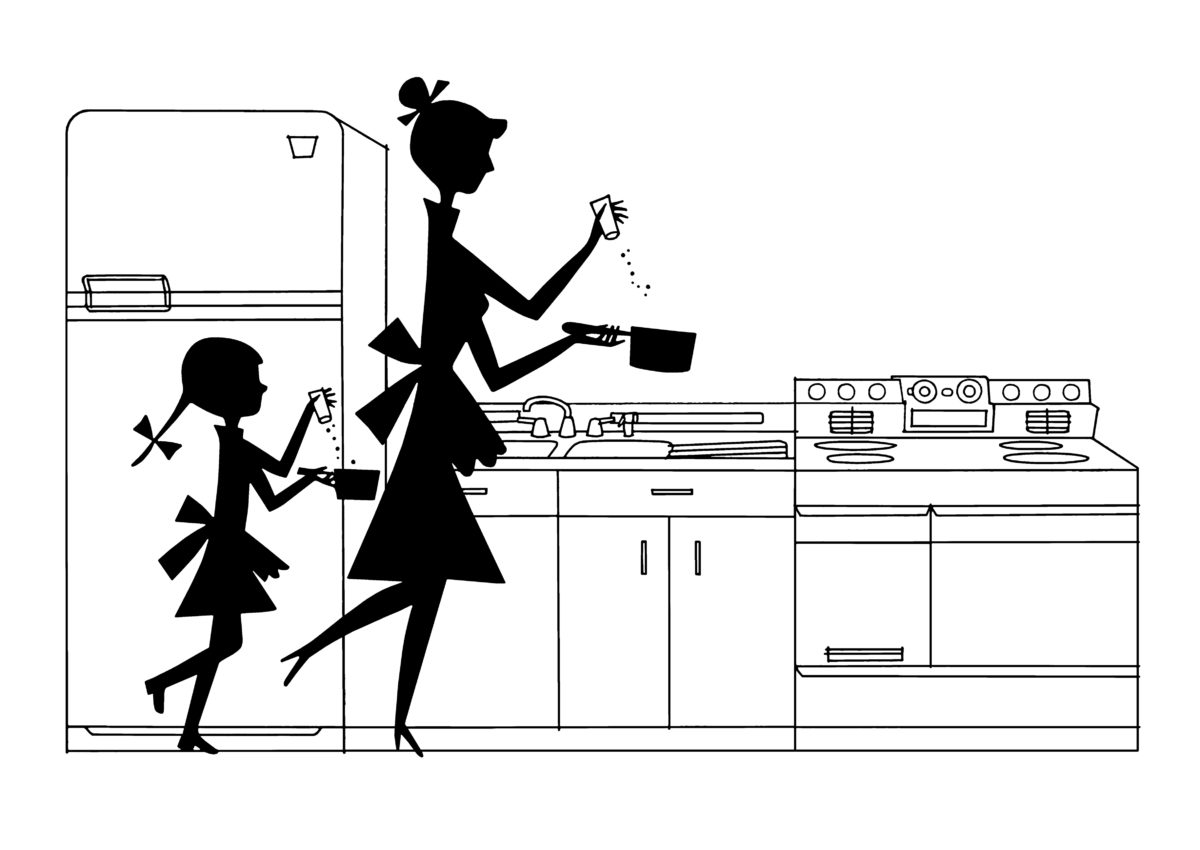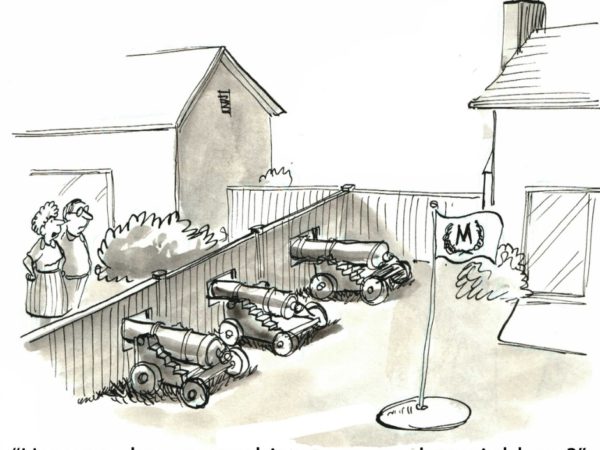Therefore, the abbot must never teach or decree or command anything that would deviate from the Lord’s instructions (Rule of St. Benedict 2.4)
Neither should parents. Maybe you fail to hit the bull’s eye, but at least you aim for the target. Your children will imitate whatever they see you do. This means that if your son sees you aiming for the bull’s eye, he’ll aim too. And sometimes he turns out to be a much better shot than you are. But you’re the one who points the way. Parents are role models for their children.
Then at last the sheep that have rebelled against his care will be punished by the overwhelming power of death (RB 2.10).
No! Not eternal death! As a parent, you’re responsible to turn away from the hot door with the smoke seeping around it. Don’t imagine that your children wouldn’t follow you through it. You no longer have the option to ruin only your own life. Even if there’s not always an exit marked FUN, your job is to find one marked POSSIBLE. Sometimes it opens on a deep, daunting stairwell with many steps. But in this passageway are extraordinary people with far worse injuries than yours who still have the courage to go on. Follow them.
Furthermore, anyone who receives the name of abbot is to lead his disciples by a twofold teaching: he must point out to them all that is good and holy more by example than by words, proposing the commandments of the Lord to receptive disciples with words, but demonstrating God’s instructions . . . by a living example. Again, if he teaches his disciples that something is not to be done, then neither must he do it (RB 2.11-13).
Mimetic human beings copy each other, even when they have no idea what’s going on (René Girard). Children especially copy their parents–maybe not now, but thirty years from now, when they face your situation and have no model for how to react except how you react today. If there’s a contradiction between what you tell your children and what you actually do, they will have to untangle your mess. So do everyone a favor and try to be consistent.
How is it that you can see a splinter in your brother’s eye, and never notice the plank in your own? Matthew 7:3 (RB 2.15)
Whatever else you aim for, realize that the most important model you offer your children is the marriage of their parents. The hardest part of marriage is handing to God the defects of your spouse and focusing instead on fixing your own flaws. Each one of us should work on prying out the stake impaled through our own eyeball, so that when our spouse needs help with a splinter, we’ll be half blind but mobile. If spouses each have one functioning eye and a hygienic patch, together they’ll have the perspective they need to guide their children.
And yet, we do want to find ways to encourage our spouse to change for the better… One tactic is to sit down for an explicit swap talk, when each spouse gets to pick one thing (only one thing!) that you want the other person to work on. This is tricky, because the unhappiest person is going to ask for a more difficult change. The other spouse can feel hurt at the criticism and may not have an equally painful request to swap with. But don’t worry: what goes around comes around. Today, you’re the one who must make a huge effort, because your spouse can’t stand to be around you anymore. In a few years, the roles will be reversed. Your turn will come to ask, and the fact that you did try will give you more influence.
It makes all the difference in how you feel about someone if you can see that the person is trying. The thing that’s so infuriating is to feel that you’re stuck with someone whose defect is making your life miserable and who stubbornly refuses to do anything about it. You start to think that the only solution is to escape from the marriage itself. But if you see your spouse attempting to do what you asked, you can feel sympathy instead of disgust. You can hope that life will get better.
It’s up to you to decide whether the story of your family will be a comedy or a tragedy.
Hint: movies about imperfect families finding ways to work things out are always comedies. Some classics worth revisiting: Overboard; Meet The Parents; Father of the Bride; It’s a Wonderful Life; Mr. Mom; About a Boy; Three Men and a Cradle; The Family Man.




